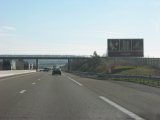What I was trying to say was not so much that it will all be plain sailing from 1 January 2012 onwards, but that if there was a point of maximum danger for the Cameron-Clegg government, it will come this year rather than any other.
The past few weeks seem to have proved the point, as tensions have erupted between the Coalition partners over a series of issues ranging from the NHS to immigration.
A year on from the opening TV debate between the party leaders which shaped the 2010 election campaign, serious commentators have started to pose the question whether another election might not be so very far off.
Last week I focused on the health reforms, and the ongoing Lib Dem-inspired backlash against health secretary Andrew Lansley's plan to hand control of the NHS budget to GPs.
Although they refrained from saying as much, the Lib Dems will doubtless have been privately rubbing their hands with glee at Mr Lansley's humiliation at the hands of Royal College of Nursing conference on Wednesday.
The yellows showed no such restraint however when Chancellor George Osborne suddenly enlivened what has thus far been a sleep-inducing campaign on whether to change the voting system.
Mr Osborne criticised the role of the Electoral Reform Society in simultaneously receiving taxpayers' money to run some of the referendum ballots and helping to fund the Yes campaign, saying: "That stinks frankly."
The comments earned the Chancellor a rebuke from his own Lib Dem deputy, chief secretary to the treasury Danny Alexander, who accused his departmental boss of "pretty desperate scaremongering."
It showed that, although the two sides have agreed to disagree on the subject of voting reform, it is very hard to have a civilised disagreement when the whole future of how we conduct our politics is at stake.
Predictably, however, the week's biggest Cob-Lib bust-up arose over Prime Minister David Cameron's decision to make a speech highlighting the impact of immigration on local communities.
Lib Dem Cabinet colleague Vince Cable said his words were "very unwise" and that the PM risked inflaming extremism.
Partly this was down to the timing of the speech, three weeks before some local elections in which the British National Party will once more attempt to make inroads.
But it also exposed real disagreements over the issue at the heart of the Coalition, with business secretary Dr Cable consistently arguing that putting a cap on immigration will limit firms' abilities to recruit key workers.
The Lib Dems have pointed out that Mr Cameron's wish to take net migration back to the levels of tens of thousands a year rather than hundreds of thousands is Conservative, as opposed to government policy.
The Coalition Agreement speaks merely of an "annual limit" on people coming to the UK from outside the European Union for economic reasons, making no reference to specific numbers.
One of the commentators who openly speculated this week that the Coalition might not see out its five-year term was the constitutional expert Vernon Bogdanor.
He pointed out that while the leaderships of both parties will almost certainly want to hug together until the end, the fate of coalitions is determined by restless, committed party members whom leaders cannot always control.
Mr Bogdanor is right to point out that it is the wildly differing nature of the two parties' memberships that gives the Coalition its inherent instability, while the good relations between their respective leaderships have hitherto been its biggest strength.
If this week's events are anything to go by, however, that may not always be the case.
